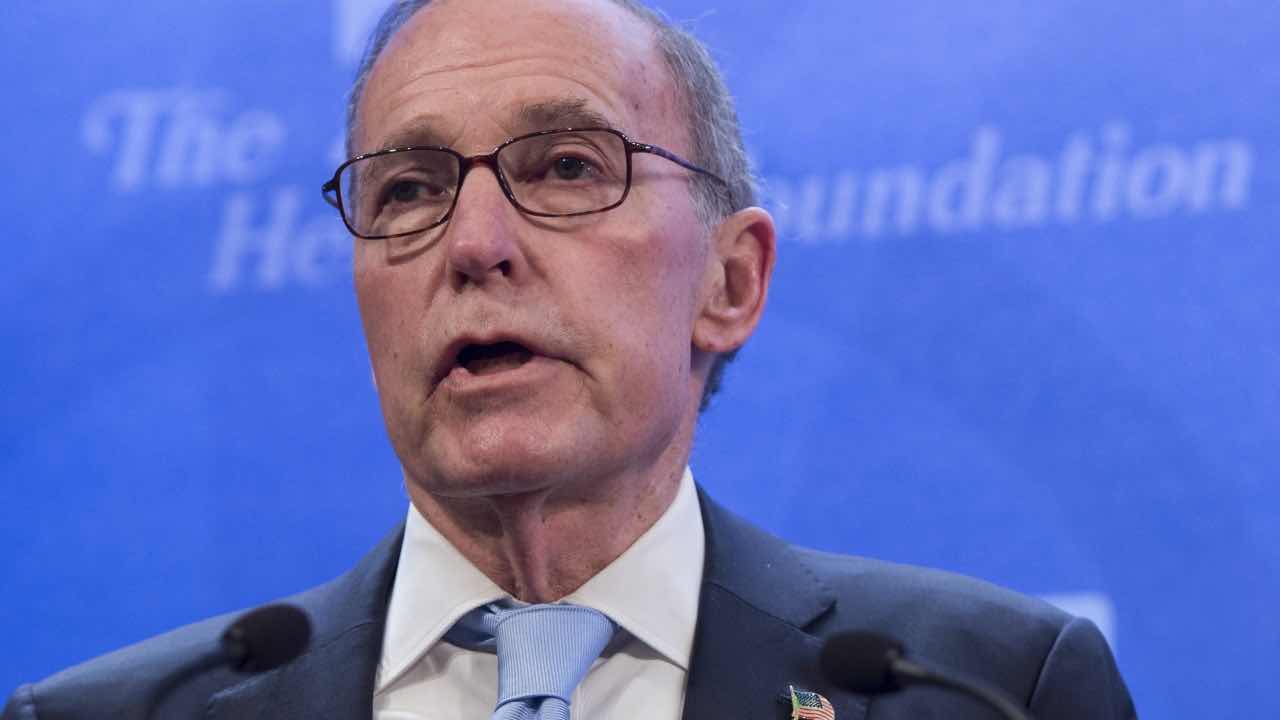Larry Kudlow, a CNBC host, has a history of serious climate science denial.

President Donald Trump has officially named CNBC host Larry Kudlow as the new director of the National Economic Council, adding yet another climate science denier to the White House.
Kudlow, who replaces Gary Cohn after the latter resigned over Trump’s steel tariffs, has for years used his position as a CNBC host to spread misinformation and cast doubt on the scientific consensus on climate change.
As director of the National Economic Council, Kudlow will have a sizable influence on U.S. economic policy, including issues related to energy as well as domestic and international climate policies.
Cohn, in his tenure as director, worked to keep the Trump administration from leaving the Paris climate agreement.
Kudlow, with his history of climate denial, is unlikely to be similarly concerned with climate action.
In 2008, in a column in opposition to the cap-and-trade bill that was then working its way through Congress, Kudlow suggested that “a bunch of scientists … don’t think we have a global-warming problem at all” and suggested that solar warming could be responsible for an increase in global temperatures.
And Kudlow’s climate misinformation is merely part of a larger trend within CNBC.
A 2013 study from Media Matters found that CNBC misrepresented climate science in more than half of its segments on the subject, including many segments that completely denied that manmade climate change was occurring.
In a 2013 segment on CNBC, Kudlow suggested that the controversial Keystone XL pipeline — which Trump has attempted to revive through executive order — would benefit animals because they could “snuggle” under the pipeline for warmth.
The Department of Interior, in its environmental review of the project, did not agree with Kudlow’s assessment, finding that the pipeline would cause“permanent threats to wildlife” including habitat fragmentation and species displacement.
Kudlow was also a vocal critic of the Paris climate agreement, which Trump announced the United States would be pulling out of in June of 2017. Kudlow applauded Trump’s decision, arguing that the agreement represented “a war on fossil fuels.”
In joining the administration, Kudlow will find ample support for his fringe views on climate — as president, Trump has made a habit of surrounding himself with climate deniers, both in high-level White House positions and within his cabinet.
EPA Administrator Scott Pruitt has argued that human activity is not the primary contributor to climate change, while Secretary of Energy Rick Perry has cast doubt on whether carbon dioxide is “the primary control knob” for global temperature rise.
Interior Secretary Ryan Zinke has repeatedly said that climate science isn’t settled, despite the fact that 97 percent of actively publishing climate scientists agree that climate change is both happening and a result of human activity.
And of course, Trump himself denies climate science, calling the phenomenon a hoax “created by and for the Chinese in order to make U.S. manufacturing non-competitive.”
In December, Trump used record-cold temperatures along the East Coast to suggest that climate change wasn’t real, tweeting “perhaps we could use a little bit of that good old Global Warming that our Country, but not other countries, was going to pay TRILLIONS OF DOLLARS to protect against. Bundle up!”
Source: ThinkProgress. Reproduced with permission.






